In this post, co-written by 5 MosaLingua team members, you’ll read about how I learned French, and how my experience differs from four of my colleagues. Luca, Lize, Christian, Magda, and I (Abbe) will share our language learning experience to inspire and help you. We learned French in different countries and with different techniques. So, we thought it would be useful to share what we discovered along the way. And one day, we hope you will be able to say these exact words to your friends and children and tell the story of how you learned this beautiful language! (Perhaps even “How I learned French in 6 months…” or “How I learned French in one year…” if you use the MosaLingua method!)
How I Learned French in 6 Months in Italy (Luca)
Luca is the co-founder of MosaLingua and one of several polyglots on the team; he speaks Italian, Neapolitan, French, English, Spanish, Romanian, Portuguese, and German! French is the first language he learned completely independently, and it made him realize that everyone can succeed at learning a language, but conventional methods aren’t the way to go…
I took on learning French when I found out I had the possibility to study in France, at the University of Bordeaux, for a year. It was April when I got the news that I got an Erasmus grant. I was so happy, but I had one little problem: I could not speak a word of French!
I was very disappointed by the results I had achieved after studying English for many years in the Italian schooling system. So I decided to find my own way to learn French. During the 5 months leading up to my departure in September, I crafted an intensive personal program to learn as much French as I could. I was studying French every day for 2-3 hours a day with one main goal: being able to understand 80-90% of the classes I would have to attend once in Bordeaux.
Challenge accepted!
It was 2009 and there were no apps or learning platforms to learn languages. You usually learned languages with a classic book+CD method. After checking out a couple of methods, I found one which seemed quite appealing to me. This method gave me the basics: vocab and grammar. But I immediately felt there was not enough listening practice. So, I started to look for online resources to expose myself to spoken French. One of the most important resources I found was TV5 Monde, which was broadcasting many videos and audio for French learners (not as many as today but at that time it was already great).
Once, I listened to a video of Corneille, a French-speaking singer born in Canada. This gave me the idea to use the lyrics of songs to learn French with music. I know that, today, the idea does not seem so original, but at that time it was very entertaining compared to the boring grammar lessons I was used to in school.
Another tool I used was the online edition of Le Monde. It was not like it is today; 95% of the content was written articles. But for me, it was enough to get exposed to the French culture and memorize words in context. It was a tedious process to look up words with my paperback Le Petit Robert dictionary (which I still keep in my library), but I quickly got hooked on the French language and culture.
How my experience learning French inspired MosaLingua and our method
All these ideas and experiences have been very beneficial for MosaLingua, the company I co-founded. In particular, many of the things you can find in MosaLingua Premium (Web & Mobile). It’s a tool I would have dreamt of when I was studying French, with interactive resources and opportunities to learn vocab in context. We are so lucky today! So, how can you learn French? In a nutshell, I learned French with a mix of traditional resources (a classic CD+Book method) and with a series of multimedia resources available on the internet.
And how fast can you learn French? Well, I was thrilled with the results because when I went to Bordeaux in September, my goal was accomplished: I was able to understand University classes in French and I was capable of getting by in day-by-day life, after about 6 months of intensive study. Of course, the 10 months I spent there were important for improving my speaking skills. Today, we are so lucky because people don’t have to live abroad to perfect their speaking skills anymore. There are so many tools for chatting with native speakers, even from the comfort of your home!

How I Learned French on My Own in Brazil (Lize)
Lize is MosaLingua’s beloved Portuguese teacher and translator, and the producer for our YouTube channel. You could say that learning French has become an addiction for her! In addition to French, she speaks Portuguese, English, and Spanish.
How did I learn French, living in Brazil, and before I even had the chance to visit France? By the oldest method, I have to admit: going to a traditional French school, three hours a day, twice a week, for 6 years. Now that I think about it, I see it might sound too much. But rumor has it that folks who have no vices have very few virtues. So, I guess I just chose mine carefully.
The truth is that it didn’t actually take me the whole six years to learn French, but it has always been my favorite language to learn. So, for as long as I could find the time, I just wanted to learn more and more. And, besides French movies (an old passion of mine!), French music, Asterix and Le Petit Nicolas books, classes were a fair way to keep in touch with the language. So much that, after finishing the Basic level, I just kept taking course after course to help me stick with the language.
Could I apply what I learned in language school?
The upside was that the first time I went to France, I could talk about everything, even the price of natural gas (although, oddly, this subject never came up when I talked with French natives in cafes, trains, museums, and hostels…). The truth is that being able to fully communicate made my travelling experience in France way richer than in other European countries where I did not speak the local language.
The downside? I did – and still do! – sound a lot like a textbook. Something I only realized after getting familiar with the “MosaLingua style” of learning languages, and after having my first tandem experience. Language exchanges are really a game-changer in terms of speaking progress, and are definitely my new chosen vice to keep improving my French.
How I learned French in and outside Germany (Magda)
Magda is MosaLingua’s German translator and blog manager, and living proof that it’s a wonderful idea to start teaching your children a foreign language as early on as possible! She speaks German, French, Polish, English, and Spanish.
French was the first foreign language that I got in touch with at the age of 8. A French friend of my mom’s organized a playful French class for kids around that age, where we would learn our first French words and phrases through songs and games.
Two years later I chose a Gymnasium that offered French instead of English as my first foreign language. And the bit I had learned before gave me a quite confident start. My mom (who backed my choice) had the idea that it would be beneficial to start off with “the more difficult language” at a young age and I still agree with her on the fact that languages are among the most beautiful gifts your parents and caretakers can give to you.
Through school, I had the chance to join two student exchanges. Both were a great opportunity to practice language skills with “real French families”. Apart from this, the biggest advantage of my academic education in French was its longevity. After 9 years of French in school I just naturally stuck to the language, randomly joining French classes while studying. Language courses are free at German universities and I didn’t want to lose touch with it.
Well, this didn’t turn out to be in vain, when I decided to spend a semester abroad in Orléans. Once back in France I found my brain re-birthing all the French vocabulary that had been accumulated in there for years!
I took a step back from the typical Erasmus-life and nearly hung out with French people only (making great friends through some contacts from Couchsurfing). It was amazing! I really felt at home with this language. I believe this was due to the fact of basically having grown up with it.
How I learned French in the United States (Abbe)
Abbe is an English teacher and French-to-English translator from the US who loves sharing her passion for languages. She is always looking for new ways to help our language learners via the MosaLingua blog and YouTube channel. She speaks English, French, and Spanish.
Americans aren’t known for their foreign language skills. The fact that English is so widespread and vital to today’s global society is a blessing and a curse! Luckily for me, there happened to be a French immersion school close to my childhood home. I attended it, mostly out of convenience, from Kindergarten (age 5) through the end of middle school (age 13). The immersion setting not only meant that I began learning French at a very young age – since most American children only start studying a foreign language in middle school. I also got all-day-every-day instruction in French, instead of the 45-60 minutes a day that students typically get.
And it was horrible. At the beginning! I cried every day after school for at least the first month, partly because I didn’t understand my teachers. My parents couldn’t even help me with my homework because neither of them spoke a word of French! But the weeks went by, and through games, stories, pictures, songs (a few of which I still remember today), creative activities, and play, I picked up the language almost like a native speaker would. There was very little focus on grammar until middle school, so we learned sentence structures and conjugations naturally.
I continued studying the language throughout high school and got a bachelor’s degree (university) in French language and literature. There, I learned the more “formal” aspects of the language. Now, I live in France with my French partner, who I met when I studied abroad here in college. I can understand and express myself in French almost as well as I can in English, but I love that I still learn something new nearly every day!
How I learned French in One Year Abroad and in Canada (Christian)
Christian is a Canadian writer and translator living in the South of France. He speaks English and French, and is now teaching himself Italian with the help of MosaLingua. As you’ll see, his French language journey was anything but straightforward, but his fluency is a testament to perseverance!
As you may know, Canada has two official languages, English and French. However, not all the provinces are French-speaking. I grew up and went to university in English-speaking parts of the country. Sure, I had regular weekly French classes in school, from K-10 actually, but, unlike MosaLingua, these were too focused on grammar and syntax to be all that useful. I dropped French in Grade 11 and, so I thought, never looked back…
Fast-forward to my 2nd year of university in Toronto. My best friend decided she wanted to do an exchange year in France, and it sounded like an awesome idea! I already spoke the language a little bit, and I loved the idea of moving to a foreign country to experience a new culture. Plus, cheese, wine, what’s not to love, right? So off we went — we moved to Lyon (still my favourite French city!) for an exchange year.

But to be honest, I didn’t really make the right effort. I loved living in France, and I had French roommates, but at the university, I tended to speak English. So, I didn’t make all that much progress despite being in France. That’s because I didn’t immerse myself in the language. Unfortunately for me, I wasn’t yet part of the MosaLingua family! I didn’t realize just how much progress I could make by taking more time to do French-based activities.
When I got back to Canada, I spoke a little French from time to time, but not much. And I could feel it already starting to slip away.
If at first you don’t succeed…
By happy coincidence, after I finished my degree, my parents were living in the south of France doing research. I decided I’d take advantage of the situation, go back over and try again to really immerse myself in the French language and culture.
This time, it stuck. That was 8 years ago! Today, I am fully fluent in French. I work as a writer in both French and English, do professional translations, have a French partner and French friends — une vie française quoi. The amazing thing is that I still learn something new almost every day. Yesterday, for example, I learned the verb plussoyer, a somewhat slang term meaning to heartily agree. That’s the wonderful thing about language — you’re never done learning it.
Next on my docket: I’m learning Italian with the MosaLingua Learn Italian app. I live in Nice, so Italy is just a 20-minute train ride away. Let’s see what the next 8 years will bring!
How Can I Learn French?
So, now that you know that there are many paths to French mastery, are you feeling inspired? If you’re thinking, “Teach me French!” we’ve got you covered. We of course recommend the MosaLingua Learn French app, but here are some other articles that can get you on your way to learning French:
- The Best Free Resources to Practice French
- If you can’t travel to a French-speaking country anytime soon but still want to meet and speak to French speakers in person, read this article to find out how to meet native speakers in your city.
- There are plenty of binge-worthy French TV shows that are great for learners. You can even learn French with Netflix!
- Podcasts are another excellent resource for language learners. Here is a list of our favorite podcasts for French learners, organized by level.
Related posts:
Start improving your French today
Good news: we can help!
More good news: you can get started for free! With your free trial, you can test drive the most effective method for learning French for the next 15 days!
Vocabulary flashcards, videos with subtitles, audiobooks, articles adapted to your level – with MosaLingua Premium (Web & Mobile), you’ll have access to all this and more. Get started right now. It’s free—and risk-free—to try!
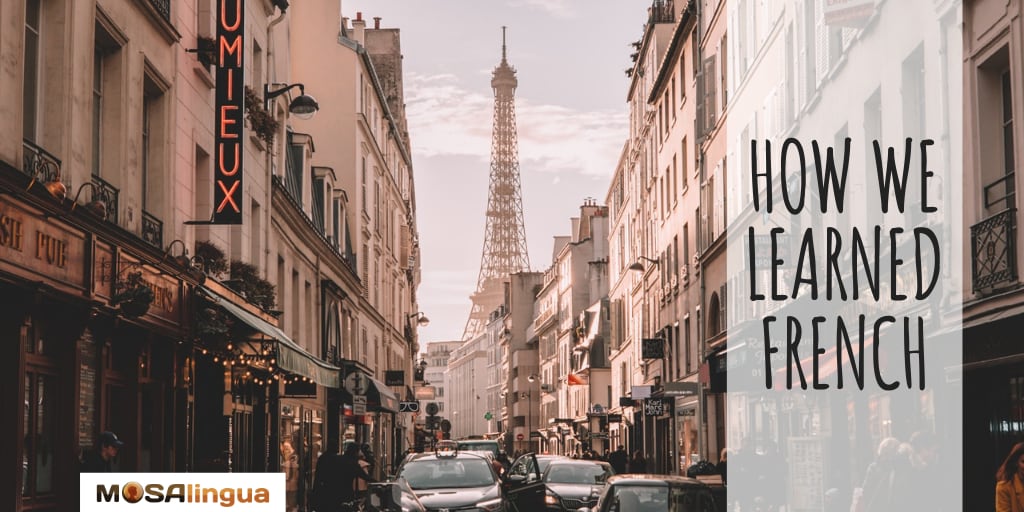
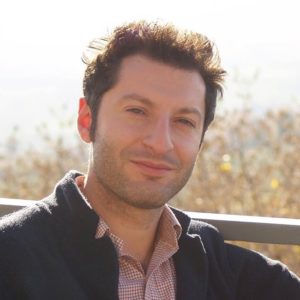 Luca is the co-founder of MosaLingua and one of several
Luca is the co-founder of MosaLingua and one of several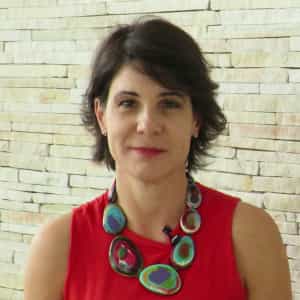 Lize is MosaLingua’s beloved Portuguese teacher and translator, and the producer for our YouTube channel. You could say that learning French has become an addiction for her! In addition to French, she speaks Portuguese, English, and Spanish.
Lize is MosaLingua’s beloved Portuguese teacher and translator, and the producer for our YouTube channel. You could say that learning French has become an addiction for her! In addition to French, she speaks Portuguese, English, and Spanish. Magda is MosaLingua’s German translator and blog manager, and living proof that it’s a wonderful idea to start teaching your children a foreign language as early on as possible! She speaks German, French, Polish, English, and Spanish.
Magda is MosaLingua’s German translator and blog manager, and living proof that it’s a wonderful idea to start teaching your children a foreign language as early on as possible! She speaks German, French, Polish, English, and Spanish.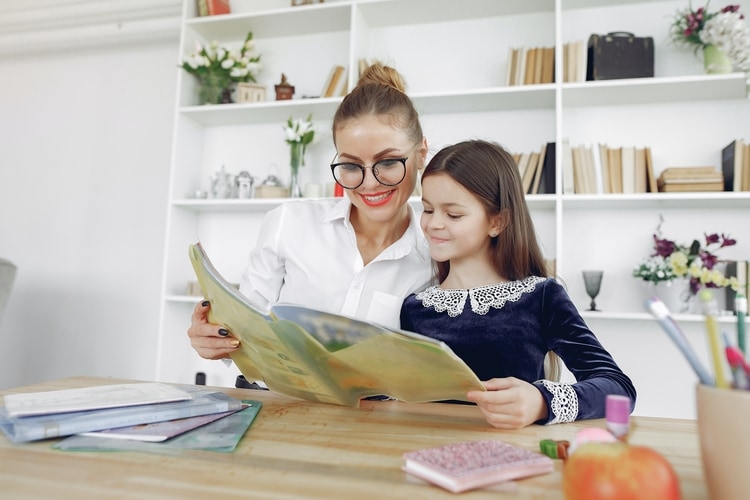
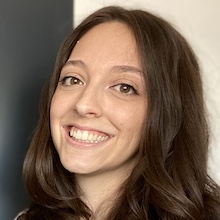 Abbe is an English teacher and French-to-English translator from the US who loves sharing her passion for languages. She is always looking for new ways to help our language learners via the MosaLingua blog and YouTube channel. She speaks English, French, and Spanish.
Abbe is an English teacher and French-to-English translator from the US who loves sharing her passion for languages. She is always looking for new ways to help our language learners via the MosaLingua blog and YouTube channel. She speaks English, French, and Spanish. Christian is a Canadian writer and translator living in the South of France. He speaks English and French, and is now teaching himself Italian with the help of MosaLingua. As you’ll see, his French language journey was anything but straightforward, but his fluency is a testament to perseverance!
Christian is a Canadian writer and translator living in the South of France. He speaks English and French, and is now teaching himself Italian with the help of MosaLingua. As you’ll see, his French language journey was anything but straightforward, but his fluency is a testament to perseverance!![Why Fake It Til You Make It Should Be Your New Language Learning Motto [VIDEO]](https://www.mosalingua.com/en/files/2021/04/fake-it-til-you-make-it-300x150.jpg)
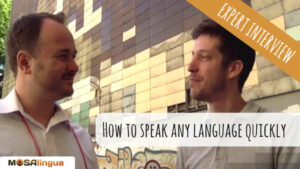
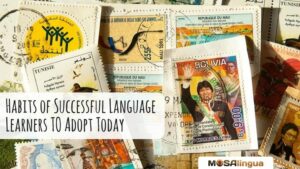

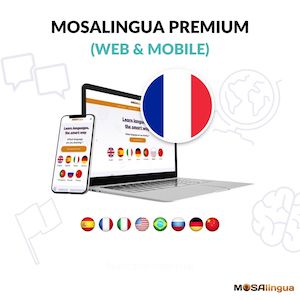
Comments